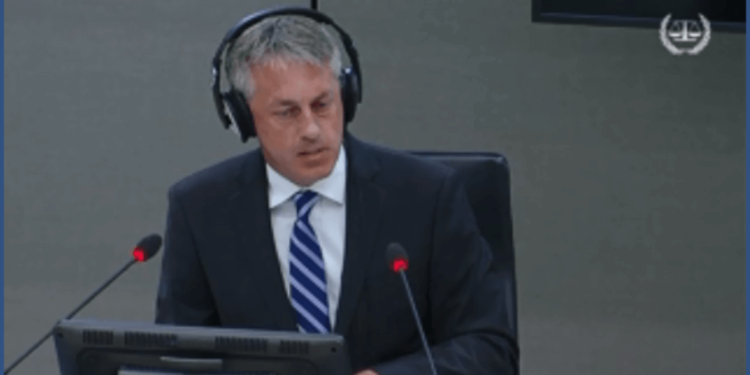By Susan Kendi
Failure to exhibit mental disorders in some rape survivors is not proof of mental wellness, an expert told the International Criminal Court.
Professor Daryn Scott Reicherter, an expert on cross cultural trauma and professor of psychiatry, said it was uncertain that a rape victim could survive rape without experiencing some long term negative psychology.
He explained to the three-judge bench of Judges Bertram Schmitt (presiding) and Raul Pangalangan and Peter Kovacs that survivors of sexual violence remain vulnerable, unstable and that the challenges of treating the trauma is greater.
Prof Reicherter has previously testified in the Bemba case as an expert witness. On May 14, 2018, he told the court the fact that some rape survivors did not exhibit mental illness did not mean that they were well.
Here are the excerpts of the exchange between Paolina Massidda, office of the Public Counsel for Victims, and Professor Reicherter.
Massidda: You have been called as expert by the team representing victims. What is your full name?
Reicherter: Daryn Scott Reicherter.
Massidda: What is your nationality?
Reicherter: United States of America.
Massidda: What is your occupation, professor?
Reicherter: I am a professor of psychiatry and director of the director of the Human Rights in Trauma Mental Health Laboratory, Stanford University.
Massidda: What is APA?
Reicherter: American Psychiatric Association.
Massidda: Have you previously appeared before this court?
Reicherter: I testified in the case of Bemba
Massidda: In what expert did you appear in?
Reicherter: Topic on the outcomes in sexual violence and rape
Massidda: Do you confirm that the content of the report is accurate?
Reicherter: Yes.
Massidda: Do you object to your report being admitted in court?
Reicherter: I do not object.
After Massidda concluded her questioning, Ongwen’s lawyers took over. Here are excerpts of of the examination by lawyer Beth S. Lyons.
Lyons: When rape occurs in a cohesive environment neither a man or woman has a choice of the environment. Does the ripple affect both the man and woman?
Reicherter There is a lot of cultural consideration but if I was to generalize, I would say it affects both the male and the female but the female to a larger extent.
Lyons: If a child experiences sexual trauma, is it true that he or she will replicate the same when a grown up?
Reicherter: That is borne out in the literature.
Lyons: In Bemba transcript 168, you testified about PTSD among the groups. You said the general population has a PTSD in 1.7 per cent. Does this apply to a child adopted by the LRA?
Reicherter: Yes.
Lyons: Do you conclude today that PTSD is common among all these groups?
Reicherter: Yes.
Lyons: You talked about the nature of PTSD in the Bemba trial. You talked of the chronic nature when you interviewed victims of sexual trauma and even if it occurred five years after. Do you stand by your conclusion that PTSD can recur within one’s lifetime?
Reicherter: Yes.
Lyons: Your Honour, the cross examination of this witness is over.
Lyons: (Addressing the witness) Thank you for answering the cross-examination questions.
Reicherter: Thank you.
Prof Reicherter concluded his testimony and a new witness was expected to take the stand on May 15, 2018.







